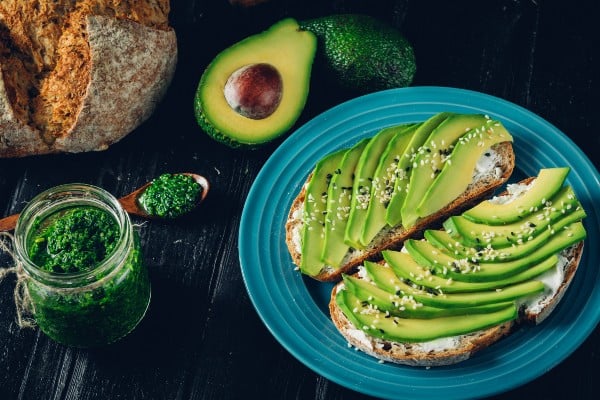As demand for avocados continues to rise, an Israeli-Moroccan venture expects to fill world needs.
By Sharon Wrobel, The Algemeiner
Israel’s largest grower and exporter of citrus is for the first time venturing out of the country to grow avocados, in a move to meet the constantly rising global demand for the tasty superfood.
As ties between the Jewish state and the North African kingdom have continued to deepen since their normalization agreement last year, Mehadrin has entered into a joint venture to grow avocados in Morocco, looking to expand production to Africa and Latin America in the hopes of producing the fruit year-round and at lower costs.
“Planting the avocados in Morocco is part of a larger plan to be able to supply our European customers more easily than from Israel in terms of geography and in terms of more competitive costs,” Shaul Shelach, CEO of Mehadrin, told The Algemeiner. “The strategy to grow avocados outside of Israel will be to have agricultural business in the Southern hemisphere like Africa, and some geographies in Latin America, which will be exactly the opposite part of the year to be harvesting avocados.”
Mehadrin revenues come in large part from growing the profitable avocado crop and citrus, as well as Israel’s prized medjool dates. Over the next decade, the avocado is expected to be the fastest growing commodity of among fresh tropical fruits like mango, pineapple and papaya, as demand continues to outstrip supply.
“Avocado is a superfood and the per capita consumption is growing very fast in the US and in Europe, while at the same time there are very large amounts of planting of avocado also in Israel, in Latin America, and in Africa,” Shelach remarked. “What we experience today is that everyone is running after the avocado, as most of the year, there are some low stocks or shortages of avocados — which is not what will be the case five years from now.”
Avocado production is forecasted to more than triple by 2030, compared with 2010 levels, at 12 metric tons, according to the OECD-FAO Agricultural Outlook 2021-2030 — becoming the most traded major tropical fruit.
For now, Mehadrin exports avocados grown in Israel to customers in Europe during a limited period between October to March or April, its growing season in the Jewish state. Besides limited window, the high cost of water in Israel has helped push Mehadrin is toward other geographies for its avocado line, to ensure a competitive and efficient business even when the supply of the fruit is saturated.
In April, the Israeli grower struck an agreement with a Moroccan company, in which it will hold a 51 percent stake. The two partners plan to lease land stretching across an area of at least 5,000 dunams (1,235 acres) and jointly invest about $9 million over a three-year period. The plantation will be leased from the Moroccan government and the maximum annual output is expected to be around 10,000 tons of avocados.
“In Morocco, which is close to us and close to Europe, we found the basic advantages needed for growing avocado, the needed type of land, water, weather, and lower labor costs. It’s not a country with a long tradition of growing avocado, but we have all the know-how and experience for that,” Shelach explained. “Israel is a country with a very long tradition of growing them and optimal conditions, so we have a lot of advantages in the know-how of growing avocados.”
“We learned throughout the years when you have to do what in order to get the utmost out of the avocado tree, which involves the treatment of the trees in the orchard and choosing the right parts of the tree you plant,” he said. “We say about the tree that what you give it, it gives you back.”
The agreement comes after Israel and Morocco in late 2020 resumed diplomatic ties as part of a normalization agreement brokered by the US, joining other Arab countries, including the United Arab Emirates and Bahrain.
A July report from Israel’s Regional Cooperation Ministry and the Israel Export Institute said that Israeli exports to Morocco could eventually reach some $250 million annually.
“The political atmosphere helps to go to Morocco this year, rather than two or three years ago,” Shelach added.
Shelach expects that the two partners will receive the land from the Moroccan government in the coming two weeks after, which they plan to start planting in March. It will then take two to three years to begin reaping fruit, and five years for all of the avocado trees to come to full harvest.
In coming years, about 74% of avocado production is expected to remain in Latin America and the Caribbean due to the favorable growing conditions in this region, according to the OECD report. The US and the European Union, where consumer interest in avocados is fueled by the fruit’s supposed health benefits, are expected to remain the main importers, with 40% and 31% of global imports in 2030, respectively.
Shelach said that about 85% of the avocados would likely be sent to Europe, with the rest sold in the local market in Morocco.
“Our next step is to look for the right partners for two more businesses to grow avocados in Africa and Latin America in seasons that they don’t grow in Israel,” he said.
